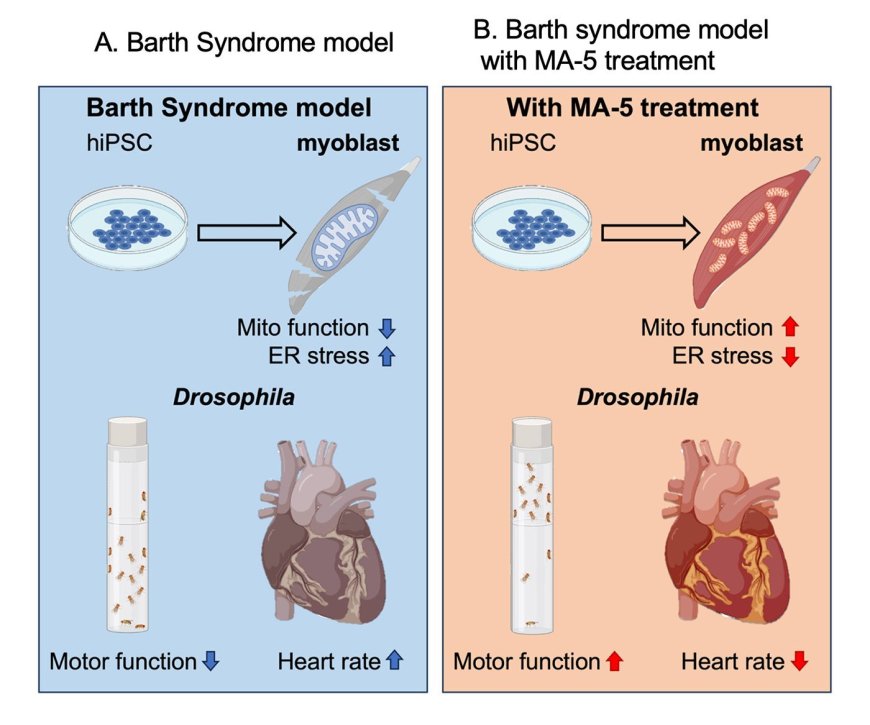Promising Oral Drug MA-5 Improves Heart and Muscle Symptoms in Barth Syndrome
Researchers at Tohoku University have found that the oral drug MA-5 shows potential in treating heart and muscle issues in Barth syndrome, a rare genetic disorder affecting 1 in 300,000 births globally. MA-5 targets defective energy production in mitochondria, addressing the root cause of the disease. Promising results from cell and fruit fly models have led to successful Phase I clinical trials in Japan.

Researchers at Tohoku University have discovered that an oral drug called MA-5 can improve both heart and muscle problems in Barth syndrome, a rare genetic disorder affecting 1 in 300,000 births worldwide with no current cure.
Barth syndrome is caused by mutations in the TAZ gene that leave patients—mostly young boys—with weakened hearts, muscle fatigue, and increased rates of infection. Many require heart transplants, and current treatments only manage symptoms without addressing the underlying cause.
The research team, led by Professors Takaaki Abe, and Takafumi Toyohara, and first author Yoshiyasu Tongu, tested MA-5 on cells from four Barth syndrome patients and in fruit fly (Drosophila) models of the disease. Published in The FASEB Journal on June 21, 2025, their findings reveal that MA-5 boosted cellular energy (ATP) production by up to 50% and protected cells from oxidative stress-induced death.
MA-5 was chosen as a treatment because it enhances interactions between two crucial mitochondrial proteins—mitofilin and ATP synthase—leading to more efficient energy production. As such, this mechanism directly addresses the cause of cellular dysfunction in Barth syndrome.
In human muscle cells derived from Barth syndrome iPS cell models, MA-5 corrected abnormal mitochondrial structures and reduced cellular stress markers. When tested in Drosophila with Barth syndrome, the drug dramatically improved their climbing ability (capacity for physical exertion) and normalized their elevated heart rates—two key symptoms that mirror how the disease affects humans. Furthermore, MA-5 restored normal mitochondrial structure in the Drosophila muscle tissue.
These promising results suggest that MA-5 addresses the largest challenges faced by patients with Barth syndrome, which would significantly improve their quality of life. Phase I clinical trials in Japan have been completed successfully, and the research team is preparing to start Phase II trials soon.
Considering the limited options for treatment currently available, this research provides hope for a better future for patients and their families. Critically, MA-5 can be taken orally, which makes administration significantly easier for pediatric patients. It is the first oral medication for Barth syndrome to progress to the clinical trial stage.
The team's findings suggest that MA-5 could become the first disease-modifying treatment for Barth syndrome, offering new therapeutic options beyond current symptomatic management.
According to the source: Medical Xpress.
What's Your Reaction?
 Like
0
Like
0
 Dislike
0
Dislike
0
 Love
0
Love
0
 Funny
0
Funny
0
 Angry
0
Angry
0
 Sad
0
Sad
0
 Wow
0
Wow
0






















































































































































